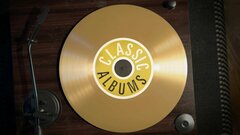Krist Novoselic

Musician • Activist
Birth Date: May 16, 1965
Age: 59 years old
Birth Place: Compton, California
Bands: Nirvana
As the bassist for the post-punk/grunge band Nirvana, Krist Novoselic rose from obscurity in Aberdeen, WA to worldwide fame and shared credit for reshaping the path of the music industry in the early 1990s with the release of the game-changing albums Bleach (1989), Nevermind (1991), and In Utero (1993).
With school friend Kurt Cobain and drummer Dave Grohl, Novoselic and Nirvana decimated the moribund pop-rock "hair band" scene with the fire and fury of punk spirit, helping to launch the alternative movement that would soon preside as one of the dominant genres in popular music. Cobain's suicide in April 1994 brought the group to a shockingly premature close, causing the grief-stricken Novoselic to busy himself with short-lived acts like Sweet 75 and Eyes Adrift, while further developing his long-held passion for politics through various responsibilities with voter groups and Democratic organizations. He maintained a respectful attitude towards his legacy with Nirvana while maintaining his own fierce independent streak through his commitments to the American political process at a grassroots level.
Born Krist Anthony Novoselic (pronounced "Nova-SELICH") in Compton, CA on May 16, 1965, he was the eldest of two sons by Croatian immigrants Kristo and Marija Novoselic. The family moved to the coastal town of San Pedro, CA shortly after Novoselic's birth, then relocated to Aberdeen, WA in 1979.
Extremely tall for his age at 6'7" and possessed of a severe underbite, Novoselic - who at that time went by the Americanized "Chris" - was the classic outsider who found solace in rock-n-roll. Classic acts like Black Sabbath and Van Halen were his initial favorites, but he also discovered newer groups like Devo; a yearlong visit to relatives in Croatia in 1980 helped to introduce him to punk rock. Upon his return to the United States in 1981, he bought a guitar and taught himself the basics by playing along to blues records.
In 1986, Novoselic met the quiet, withdrawn Kurt Cobain through his younger brother, Robert. The unlikely friends bonded over their mutual admiration of local punk-metal group the Melvins, and Cobain repeatedly tried and failed to get Novoselic to form a band with him. Novoselic finally relented after undergoing surgery to correct his underbite, and the group underwent a number of name changes and rotating drummers before settling on Nirvana, with Chad Channing on drums.
Now signed to Pacific Northwest label SubPop, the trio recorded their debut album, Bleach (1989), which combined the rawness of punk with a sonically sludgy sound that suggested elements of proto-metal acts like Black Sabbath. Channing's tenure in the group was short-lived, leading to Scream drummer Dave Grohl replacing him in 1990. Now a tight 3-piece unit with their dream drummer, Cobain and Novoselic moved ever closer to their ultimate goal of signing with a major label.
Critical buzz about the band's dangerous live shows - in which Novoselic and Cobain inevitably destroyed their instruments to great dramatic effect - led to a deal with Geffen Records, which resulted in 1991's Nevermind, recorded on the cheap with zero expectations at Sound City in the San Fernando Valley.
Its astonishing success in the fall of 1991 - best exemplified by the genre-shaping first single "Smells Like Teen Spirit - led to a sea change in the music industry, with listeners and labels alike turning away from pop-metal and classic rock to focus on punk-influenced acts, which gave rise to the "alternative" or "grunge" rock movement.
While the global media attention showered overnight upon Nirvana left "generation spokesman" Cobain profoundly disillusioned and uncomfortable, the ever cheerful comedian of the group used the spotlight to gain support for various political causes, often taking over the band's press interviews to expound on his views of the world.
In 1992, Novoselic went one better, enlisting his band to play a benefit concert for the Washington Music Industry Coalition, a lobbying group formed in response to the Erotic Music Law, a bill which would empower courts to declare certain albums unfit for sale to listeners under the age of 18.
The following year, he organized a benefit at San Francisco's Cow Palace to benefit Bosnian rape victims. During this period, Nirvana also toured and recorded extensively, releasing a 1992 collection of B-sides called Incesticide and a third full-length album, In Utero in 1993, which was recorded at Pachyderm Studio in rural Minnesota. The latter album was almost as huge as Nevermind, with the singles "No Apologies," "Rape Me," and "Heart-Shaped Box" further solidifying the trio's place as the world's premier rock band.
Off stage, Cobain had struggled with depression and a severe on-off heroin addiction, leading to friction in the band, as both Novoselic and Grohl did not do drugs. After an oftentimes disastrous European tour - during which Cobain fell into a coma in Rome after an alleged suicide attempt/pill overdose in March 1994 - the band's future was in limbo. In April 1994, Nirvana came to an abrupt and tragic end with Cobain's shotgun suicide in the overhead garage of his Seattle home.
A devastated Novoselic - who had tried as much as anyone to help his heroin-addicted best friend, including interventions and physically removing him from drug dens - retreated from the spotlight, emerging only infrequently that year to accept posthumous accolades for the band's final release.
Later that year, Novoselic partnered with Grohl and Cobain's widow, Courtney Love, to oversee all future projects related to Nirvana.
The trio participated amicably in the release of 1994's MTV Unplugged Live in New York as well as the 1996 live album From the Muddy Banks of the Wishkah, both of which debuted at the top of the Billboard album charts. They eventually formed the limited liability corporation Nirvana LLC in 1997 to continue their supervision of Nirvana releases, which was to include a 45-track box set of unreleased material, including the single "You Know You're Right," which was the last song the band recorded three months before Cobain's death.
It was, in fact, Novoselic who had kept the recording stashed away in his house for over a decade. Though an agreement was signed with Geffen to release the set, Love filed a lawsuit seeking to dissolve the corporation, citing improper management decisions that would negatively affect both Cobain's legacy and her own music career as part of Hole, which was also signed to Geffen.
In her lawsuit, Love alleged that Cobain was the focus of the band, while Novoselic and Grohl were simply sidemen. The allegations infuriated both Novoselic and Grohl, who were still grieving for their friend, and who launched a countersuit that sought to remove Love from the partnership as well as the representative of Cobain's estate.
An ugly and very public war of words between both factions ensued - culminating in the bandmates demanding a court-ordered psych evaluation for Love - before she settled her case with Novoselic and Grohl one day before the case was slated to go to trial.
A compilation album, simply titled Nirvana and featuring the much anticipated single "You Know You're Right," was released in 2002, followed two years later by the box set, With the Lights Out. Love eventually sold 25 percent of her stake in the Nirvana song catalog to Primary Wave Music in 2006 to pay off her considerable debts.
After helping to form Joint Artists and Musicians Political Action Committee (JAMPAC) to fight the reintroduction of the Erotic Music Bill into the Washington State Legislature, he returned to music that same year with the band Sweet 75, a Latin/lounge-influenced band that released a single, eponymous album in 1997 before splitting three years later.
He had initially been offered the bass position in Foo Fighters, Dave Grohl's post-Nirvana group, but declined over concerns that listeners would identify them as a new incarnation of Nirvana rather than its own entity. He also directed "L7: The Beauty Process" (1998), a faux documentary about the groundbreaking all-female punk group L7, and briefly joined Dead Kennedys singer Jello Biafra and Kim Thayil of Soundgarden in the No WTO Combo, which protested the 1999 World Trade Organization meeting in Seattle.
In 2002, he formed Eyes Adrift with Curt Kirkwood of the Meat Puppets and Sublime drummer Bud Gaugh, but their self-titled debut album, which was released to considerable media interest in 2003, failed to find an audience. The group split soon afterwards, and Novoselic announced his retirement from the music business.
He soon devoted most of the next few years to local and national government issues, first as a State Committee member, and later as the chairperson for the non-profit voter organization FairVote. In 2004, he penned Of Grunge and Government: Let's Fix This Broken Democracy, which covered his history with Nirvana as well as his opinions on grassroots politics, and later served as a columnist for the Seattle Weekly's website.
In 2006, Novoselic joined the veteran punk group Flipper, but left in 2008 due to personal and schedule conflicts. The following year, he made his acting debut with a cameo in the dark comedy "World's Greatest Dad" (2009), and briefly ran for county clerk for Washington's Wahkiakum County that same year in order to protest the state's system, which allowed candidates to create their own political parties.
At Grohl's invitation, Novoselic once again returned to music in 2010, playing bass and accordion on the Foo Fighters' Wasted Light (2011) album, as well as a cover of Nirvana's "Silver" on This is Fun! (2010), a children's record by Chris Ballew of The Presidents of the United States.
Along with Grohl and Nevermind producer Butch Vig, Novoselic did the rounds in September 2011 to celebrate the 20th anniversary of the album that not only changed the industry, but all of their lives. A year later, the semi-retired bassist bounced back into the international spotlight at the invitation of Grohl, who had included his former bandmate in not only his documentary, "Sound City" (2013), but the jam session with Paul McCartney that anchored the film.
Following the devastation of Hurricane Sandy in late October 2012, a New York City benefit was staged to help the East Coast recover. Called 12-12-12, the Madison Square Garden show aired live around the world, and there was no act more hotly anticipated than what fans immediately dubbed Sirvana - a reunited Nirvana and Sir Paul McCartney standing in for Cobain as lead vocalist.
The song, a "Helter Skelter"-type jam called "Cut Me Some Slack" was an instant iTunes hit and was the most talked about single at year's end. Along with their new frontman, Novoselic, Grohl (back on drums) and Pat Smear (a touring guitarist during Nirvana's final tour) performed the song a day later on "Saturday Night Live" (NBC, 1975- ) - Novoselic's first time back on the studio 8H stage in 20 years.
By Paul Gaita
Credits

The Melvins: The Colossus of Destiny

Nirvana: Nevermind
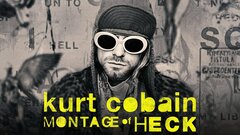
Montage of HeckStream
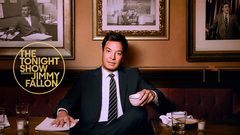
The Tonight Show Starring Jimmy FallonStream

Nirvana: Nevermind

Nirvana: Live at the ParamountStream
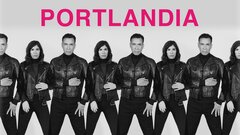
PortlandiaStream

Foo Fighters: Back and Forth
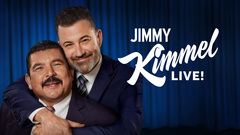
Jimmy Kimmel Live!Stream
